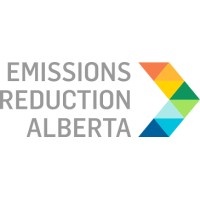
STIP — Local Municipal Initiatives
At a glance
- No Condition
- Open Date : July 1, 2023
- Closing date : November 30, 2023
- Transportation and warehousing
- Alberta
- All legal structures
- All revenue ranges
- All organization sizes
- Indigenous Peoples
- Rural or Northern Residents
Overview
The Local Municipal Initiatives grant, part of the Strategic Transportation Infrastructure Program in Alberta, supports municipalities with funding for transportation infrastructure projects aligning with economic, social, environmental, and innovation priorities. Eligible activities include highway de-designations, park access road paving, and special-need municipal projects, although the specific maximum funding amount is determined each budget cycle through cost-sharing between provincial and municipal contributions.
Activities funded
The Local Municipal Initiatives grant supports transportation infrastructure projects that align with Alberta's economic, social, environmental, and innovation goals. These projects address key local or regional transportation issues that are not covered by other funding streams.
- Highway de-designations, transferring ownership and maintenance of a highway from the province to a municipality.
- Paving of park access roads to improve accessibility and usability.
- Special-need municipal transportation projects that meet significant local or regional requirements.
Eligibility
Eligible applicants for this grant must be certain types of municipalities and communities as specified.
- The applicant must be a town, village, or summer village.
- The applicant can be a county or a specialized municipality outside the defined urban service area.
- Municipal districts and the special areas are eligible to apply.
- Metis Settlements are eligible for application.
Who is eligible?
Towns, villages, summer villages, counties, specialized municipalities outside the defined urban service area, municipal districts, special areas, and Metis Settlements are eligible to apply for the Local Municipal Initiatives stream of the Strategic Transportation Infrastructure Program (STIP).
Who is not eligible
This grant is not available to certain types of organizations and entities. The restrictions ensure that the funding supports municipal initiatives rather than private or non-governmental interests.
- Cities.
- Private organizations.
- Non-government agencies.
- Charitable societies.
- Non-government operating authorities.
Eligible expenses
The grant covers specific types of local transportation infrastructure projects.
- Projects that align with the Government of Alberta’s economic, social, environmental, and innovation priorities.
- Projects that are joint provincial/municipal priorities, such as highway de-designations.
- Paving of park access roads.
- Emergent municipal transportation projects addressing significant local or regional pressures.
Eligible geographic areas
This grant is specific to eligible municipalities within the province of Alberta, Canada. The eligible areas are defined to support local transportation infrastructure projects within these municipalities.
- Municipal Districts in Alberta.
- Towns in Alberta.
- Villages and Summer Villages in Alberta.
- Specialized Municipalities outside defined urban service areas in Alberta.
- The Special Areas in Alberta.
- Metis Settlements in Alberta.
Selection criteria
The evaluation and selection of projects for this grant are based on specific criteria to assess their alignment with local and regional transportation needs and priorities.
- Basic need, safety, and functionality assessment of the project.
- Impact on the overall transportation network, including current conditions, total traffic volume, and truck traffic volume.
- Cost-effectiveness and efficiency of the proposed project.
- Collaboration or partnership potential with industry or other municipalities.
- Economic, social, environmental, or innovation benefits expected from the project.
- Utilization of alternate funding sources, such as federal or private investments, for the project.
How to apply
Read the Guidelines
Complete the Application Package
- Prepare a cover letter describing your project and its anticipated benefits.
- Include basic information about the applicant municipality and the project.
- Provide detailed project benefits and project information as outlined in the guidelines.
Submit the Application Package
- Submit your completed application package via email to your local Transportation Regional Office or online through the Municipal Grants Management Application.
- If submitting online, inform your regional office of the submission.
- Refer to the Municipalities, Locations and Corresponding Transportation Regions list or the regional map for submission details.
After You Apply
- Await written notification regarding the status of your application.
- Be prepared to provide a final report if your project is approved, detailing expenditures and project impacts.
Additional information
Here are additional relevant details for this grant:
- Private sector contractors and suppliers must be engaged to execute all work funded by this grant.
- Applicants will receive written notification regarding their application status.
- A final report is mandatory, containing a summary of expenditures, final payment claims, construction completion certificate, photos of the completed project, and the project's return on investment.
- The reporting should include the measurement of the investment’s impact on regional economic growth, job creation numbers, improved safety and access, and increased functionality of the facility.
- Email submission to the local Transportation Regional Office is preferred for the application process.
- Municipalities are required to notify their regional office regarding any online application submissions.
Frequently Asked Questions about the STIP — Local Municipal Initiatives Program
What is the STIP — Local Municipal Initiatives?
What is the deadline to apply?
Who is eligible for the STIP — Local Municipal Initiatives program?
What expenses are eligible under STIP — Local Municipal Initiatives?
Where is the STIP — Local Municipal Initiatives available?
Is the STIP — Local Municipal Initiatives a grant, loan, or tax credit?
Who are the financial supporters of the STIP — Local Municipal Initiatives?
More programs like this

Capital Retrofits
Government of Alberta
STIP — Local Road Bridge Program
Government of Alberta
Strategic Energy Management for Industry (SEMI)
Emissions Reduction Alberta (ERA)
Regional Defence Investment Initiative (RDII) in the Prairie provinces
Prairies Economic Development Canada (PrairiesCan)
Regional Tariff Response Initiative (RTRI) — Prairie Provinces
Prairies Economic Development Canada (PrairiesCan)
Reshaping Energy Systems
Emissions Reduction Alberta (ERA)
STIP — Community Airport Program
Government of Alberta
Innovation Canada — Innovation Advisors in AB
Innovation Canada
Aquatic Habitat Restoration Fund (AHRF)
Fisheries and Oceans Canada (DFO)